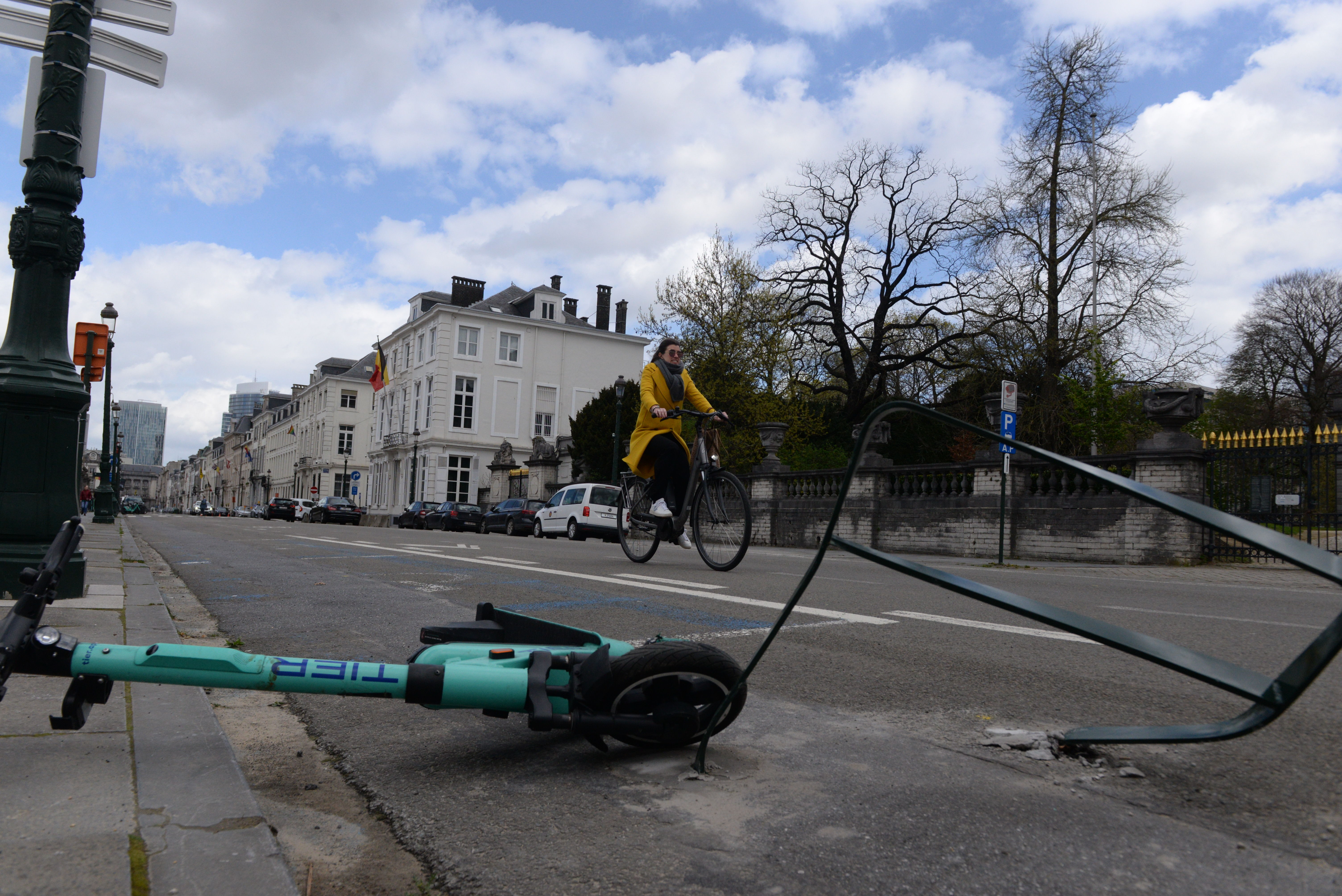Brussels aims to tackle nuisance caused by shared e-scooters

The Brussels government wants to cut the number of shared electric scooters in the region and put an end to illegal parking that blocks pavements. If the nuisance continues, the region may ban the scooters altogether.
In the public tender for the period 2024 to 2027, the Brussels government intends to offer space to only two operators and to reduce the total number of permitted scooters from 21,000 to 8,000. To prevent unauthorised parking, "drop zones" will be extended to the whole of the capital region from January. Anyone parking an e-scooter outside these zones risks a fine.
Criticism
Scooters are also facing criticism in other cities. Following a referendum, Paris's mayor announced that shared they would be banned from the streets from September. Barcelona and Montreal have already introduced bans. Lisbon, Stockholm and Oslo have drastically reduced the number of scooters allowed on their streets and limited their speed.
When they were introduced a few years ago, scooters were seen as a positive move: easy to use, cheap and sustainable. Though they were intended to reduce the number of cars and mopeds in cities, they are mainly used by pedestrians rather than to replace car journeys.
"Within 72 hours, it became clear that it was not the roads that had been taken over, but the pavements"
"When sub-steps were introduced in San Francisco (US) just over five years ago, everyone was still very enthusiastic," mobility expert Kris Peeters wrote in a blog post. "Within 72 hours, it became clear that it was not the roads that had been taken over, but the pavements."
A study by the Université libre de Bruxelles also shows that e-scooters are more polluting than the vehicles they were intended to replace. This is due to the high emissions created when producing them and their often short lifespan. To be less polluting than other means of transport, an e-scooter would have to be used for an average of 9.5 months, compared to the current 7.5 months.
"The shared scooter has nothing to do with a sustainable modal shift"
"The shared scooter has nothing to do with a sustainable modal shift," Peeters said. "And even less with sustainability. Not only are the scooters scattered all over the place at night, but they only last for a little more than a month. After that, they become electronic waste. The burdens are for society, the joys for the companies behind Bird, Lime, Bolt and others."
© CTK PHOTO/PETR KUPEC